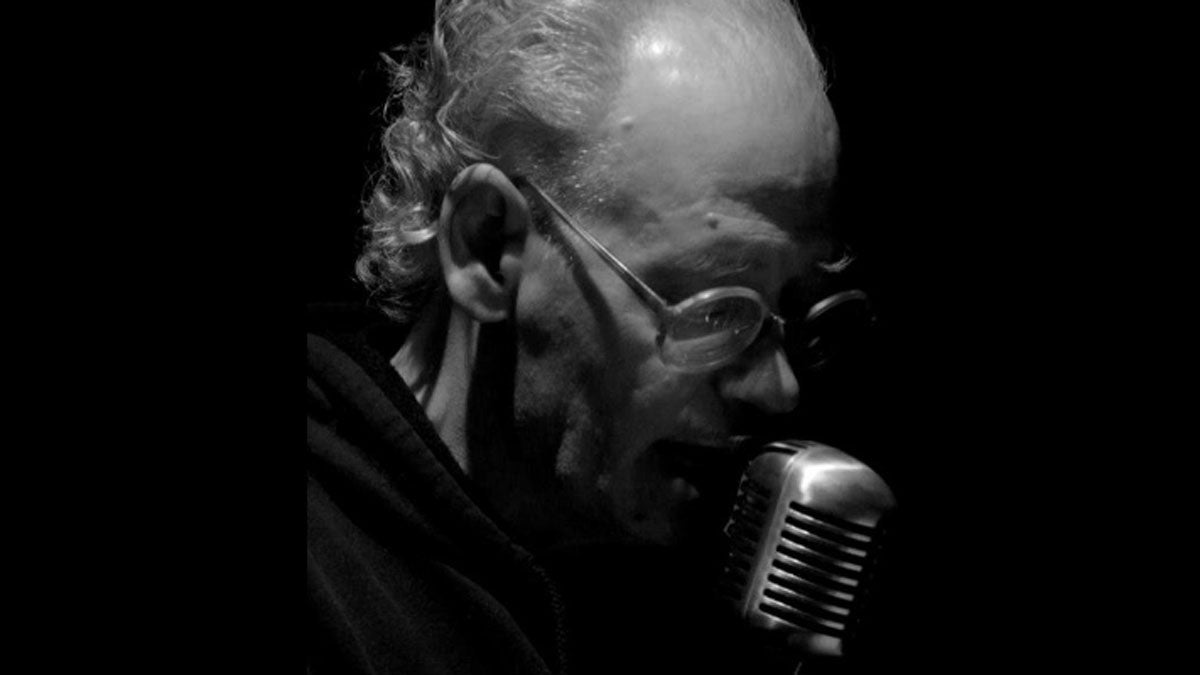Pioneer of performance-poetry Marty Watt to return to the stage in Philadelphia
Listen
B&W photo of Marty Watt speaking into an old fashioned microphone. Valencia, Spain 2012. (Creative Commons via Wikipedia. Uploaded by Orsolya Lukács)
On Sunday afternoon, a pioneer of performance poetry will return to Philadelphia for a rare appearance.
Marty Watt of Philadelphia is credited with turning poetry readings into performance art in the early 1970s.
“According to Wikipedia, I invented performance poetry in 1971-72, when I was 20,” said Watt during a phone interview from upstate New York, where he and his dog Maddie are staying with friends.
The online encyclopedia is not far off. In 1971, Watt did not want to read poems in bookstores and coffee shops like the beatniks before him. He went large, playing stages alongside rock bands.
“The main thing was we had a vision, a pose competitive with the current rock and roll scene,” said Watt, talking about himself and Patti Smith, who set her poetry to music at the birth of New York’s legendary punk scene. “Not just writing poems to be performed, but we dared to dress and act like we had the right to be as exciting as any other art form.”
His style would influence the development of both punk rock and performance art, but he pulls away from crowning himself the progenitor of performance poetry. He points to African-American performers like Gil Scott Heron and Rudy Ray Moore who brought a swagger to spoken poetry before him.
Although he sometimes dressed the part, Watt was never a punk. His trajectory went toward reggae.
“My thing had more to do with the talk artistry of Kingston, Jamaica, than punk rock,” he said.
But Watt didn’t last too long as a performer. After a brief stint fronting a dub reggae band and acting in movies (mostly notably a lead part in “Almost You” (1985) in which he performed “It Really Slits My Throat”), drinking cut his career short. “I was a complete alcoholic mess, and it came to a screaming halt in the mid-80s,” he said.
For 30 years he has been living below the radar — and sober — writing poems for his own amusement.
“For more than a decade now, my life has been dedicated to dogs,” said Watt, now 65. “For the past three years my dog and I have been interacting with a certain family of Canada geese, that I chronicle online. My dog Maddie helped raise the six goslings, who are now 6 year-olds.
“When I’m with my dog and the geese, I’m a classic old, eccentric guy,” he added. “Like, pull your children away: there’s that nut guy.”
Watt was pulled back onstage last year in Powelton Village — his old stomping grounds — to banter onstage and present a silent film poem, written on title cards of a reel of film. At the time he said the only reason he did the performance was so he could share the stage with Maddie, the dog. He vowed never to return.
He said his career is like the Godfather: he keeps getting pulled back in. PhillyMOCA, a performance venue in Philadelphia’s North Chinatown, has asked Watt to perform some of his recent work.
It’s unclear if Maddie, who is now too old to climb a flight of stairs, will be there.
Watt agreed with some hesitation.
“I was a young poet. I was really good at being a young poet,” he said. “It’s a different job being an older poet. You are expected to have some wisdom. I didn’t think that was my forte.
“The stuff I’ve been writing for a couple years now, it’s not even teen poetry. It’s the poetry a 10 year-old would write,” said Watt. “It’s full of monsters and ghosts and space travel and aliens.”
…weightlessly I land get my balance, and stand… the first POET on the moon again the lunar bottom of the sea above all scuba lace and spaceship balcony a shipwreck for a chandelier and swinging from the words that hang from this LAST LINE high above the silence below.
The Sunday afternoon reading will be a fundraiser benefiting efforts to preserve Watt’s contributions to poetry.
WHYY is your source for fact-based, in-depth journalism and information. As a nonprofit organization, we rely on financial support from readers like you. Please give today.





